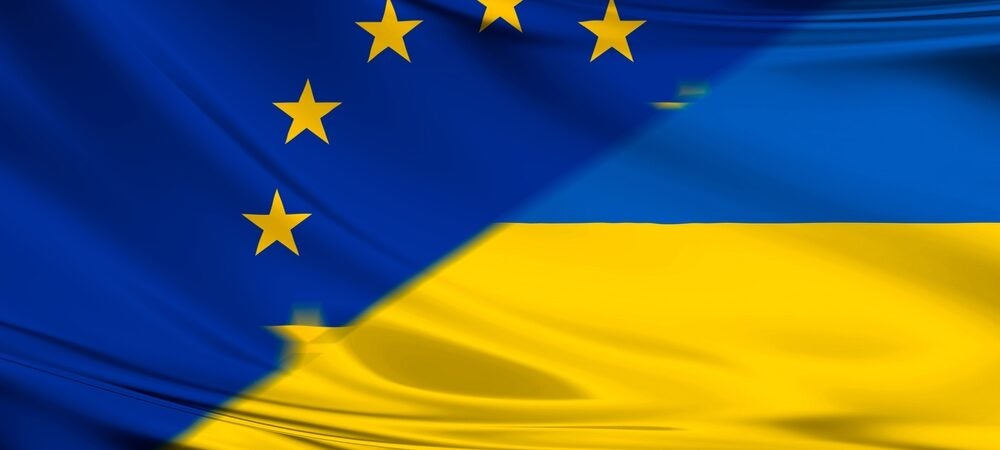The unprovoked invasion of Ukraine by the Russian Federation has resulted in hundreds of billions of dollars of destruction across the country of Ukraine in terms of destroyed infrastructure, factories, buildings and more. With the Black Sea not accessible for Ukrainian exports and with the war seriously disrupting both agriculture and manufacturing, Ukraine has been dependent on assistance from countries and multilateral organizations for funds to keep the country functioning. The United States, European Union, IMF, World Bank and others have been providing billions in economic assistance and will likely need to continue to do so for many months to come.
On April 27, 2022, the European Commission proposed a one year suspension of customs duties and antidumping and safeguard duties on imports from Ukraine to bolster Ukraineʼs economy.
A summary of what is proposed is shown on page 1 of the draft regulation and is copied below.
“Therefore, the Commission is proposing a Regulation of the European Parliament and of the Council introducing trade-liberalising measures in the form of the three following measures, which should apply for a period of one year:
“– Temporary suspension of all outstanding tariffs under Title IV of the Association Agreement between the EU and Ukraine (hereinafter referred to as ʻthe Association Agreementʼ) establishing a deep and comprehensive free trade area (DCFTA). This concerns three categories of products:
“ industrial products subject to duty phase out by the end of 2022;
“ fruits and vegetables subject to the entry-price system;
“ agricultural products and processed agricultural products subject to tariff-rate quotas.
“– Temporary non-collection of anti-dumping duties on imports originating in Ukraine as of the date of entry into force of this Regulation; and
“– Temporary suspension of the application of the common rules for imports (safeguard)2 with respect of imports originating in Ukraine.
“These temporary and exceptional measures will contribute to supporting and fostering the existing trade flows from Ukraine to the Union. This is in line with one of the main objectives of the Association Agreement, which is to establish conditions for enhanced economic and trade relations leading towards Ukraineʼs gradual integration in the EU Internal Market.”
This type of trade assistance is obviously important to help keep Ukrainian businesses operating where possible and is appreciated by Ukraine during the challenging times they are living through.
For the European Union, the temporary suspension of remaining tariffs and existing antidumping and safeguard duties on Ukrainian goods would be done under the cover of a 2016 Free Trade Agreement with Ukraine (Associate Agreement). It is unclear what level of increased exports Ukraine is capable of sending to the EU in light of the massive destruction of assets within Ukraine. But hopefully if the proposal is adopted, it will facilitate improved economic performance in Ukraine on some products.
While many other trading partners donʼt have FTAs with Ukraine, expedited consideration of what temporary trade liberalization measures could be taken on Ukrainian imports could be important additional assistance to Ukraine in the months ahead.
For example, the United States has limited imports from Ukraine – just $1.856 billion in 2021. Much of the imports are in categories that are duty free (unless subject to trade remedies).
For example, HS 72 iron and steel mill products accounted for $1.021 billion. HS 73 articles of iron and steel accounted for $137.8 million in 2021. HS 72 is largely duty free in the U.S. and most of HS 73 is duty free as well although there are eight antidumping duty orders in place as well as Section 232 tariffs of 25% on steel products. While it is unlikely that the U.S. would eliminate antidumping duties and would likely need to limit quantities of steel to avoid the 25% 232 tariffs on Ukrainian imports, a temporary suspension of ordinary customs duties and agreement to limit steel imports as a way of voiding the 25% 232 duties would be helpful to Ukraine and would cost the U.S. very little. Indeed, customs duties reported on the US International Trade Commission data-web page for 2021 for all imports of goods from Ukraine were $52.4 million ($35.8 million on imports of HS 72 and 73 products). Perhaps a temporary modification of the U.S. Generalized System of Preferences to add Ukraine would be an approach that could be pursued by the Biden Administration and the Congress.
Helping Ukraine keep its trade flowing is an important step many countries can take in 2022. Letʼs hope that the European Commissionʼs proposal is adopted by the European Parliament and European Council quickly and used for inspiration by the U.S. and many others in the very near term.
Terence Stewart, former Managing Partner, Law Offices of Stewart and Stewart, and author of the blog, Current Thoughts on Trade.
To read the full commentary from Current Thoughts on Trade, please click here.

